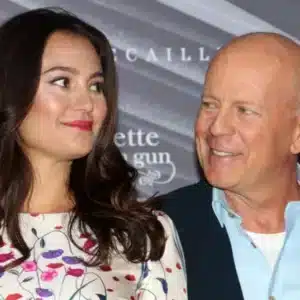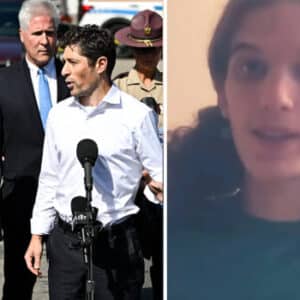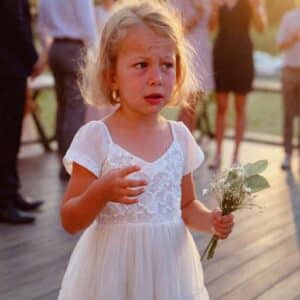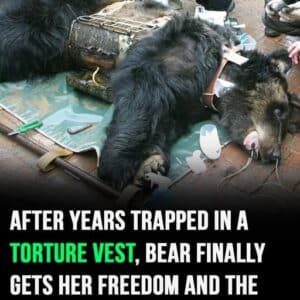When I was adopted, I didn’t just gain a new family, a new home, or even a golden retriever who curled up loyally by the bedroom door. I gained a sister.
And on my very first night, as we lay in twin beds beneath the same roof, she leaned across the dark space between us and whispered with ice in her voice: “You ruined my life. And one day, I’m going to ruin yours too.”
I thought she was just scared. Maybe she’d come to like me once the shock wore off. I tried kindness. Shared my welcome candy. Offered her my favorite book. She ripped out its pages and blamed me.
That was just the beginning.
Julia didn’t scream or slam doors. Her cruelty was quiet. Surgical. She painted over it with innocence so well that not even our parents saw the venom dripping from her every act. If I had a dress I loved, she’d wait a day and spill nail polish down the front. If I finally got invited to a sleepover, she’d whisper to the host that I had lice. I never even got to show up.
When I tried to speak up, she’d cry. She’d look up at our mom with glistening eyes and a trembling voice, and say she didn’t understand why I hated her. Mom always sighed. Dad barely looked up from his phone.
By the time I was sixteen, I had stopped trying to convince anyone. I poured everything into school, counting the days until I could be free.
And then came senior year. The scholarship letter arrived like a bolt of lightning straight into my soul. My dream university. Full ride. Books, housing, tuition. Everything.
My parents were overjoyed. For the first time, I felt seen. Celebrated. Julia? She stared for a long second and then said flatly, “Congrats. Now you get to be the charity case on scholarship.”
I thought that would be the end of it.
I was wrong.
Graduation morning was perfect. Gowns laid out. Cameras charging. My parents bustling around, trying to contain their excitement. But Julia? She was quiet. Polite. Helpful. Not a single cruel joke or sharp jab. That should have warned me. Her silence always did.
Backstage at the gym, we lined up alphabetically. Julia was behind me, too close. I felt the heat of her breath before I heard her voice.
“Remember when I said I’d ruin your life one day?” she murmured. “Today’s the day.”
Then they called my name.
I took a deep breath, stepped forward—and fell.
My foot snagged. My body lurched. The gym fell silent except for the thud of my knees hitting the floor. My cap flew. My tassel tore. Pain surged up my legs, but all I could hear was the sound of hundreds of gasps.
I pushed myself up, trembling, and took the diploma from the principal with shaking hands. When I turned around, Julia stood behind me, arms folded, concern painted clumsily across her face. But the corner of her mouth twitched.
What she didn’t know was that the school had mounted GoPros on either side of the stage for the live stream. The whole thing—her whisper, the subtle switch in line, the deliberate trip—had been caught in HD.
That night, the video was posted to the school’s Facebook page. Students, parents, teachers replayed it. Slowed it down. Commented.
No one saw a clumsy accident.
They saw cruelty, cold and calculated.
Julia lost her community award. Her scholarship offer vanished. Our parents, now finally seeing the unfiltered truth, delivered a teary, uncomfortable apology at my graduation dinner.
And me? I gave a speech.
“To every adopted kid who’s ever felt like a ghost in someone else’s home,” I said, standing before the crowd, voice steady, “you do not have to prove your worth. You already belong.”
Months later, I arrived on campus. A clean slate. New air. New life.
On my bed was a small care package. Snacks. Lavender spray. A journal. And a note in familiar script.
“You didn’t fall, sweetheart. You rose.”
And I did.





